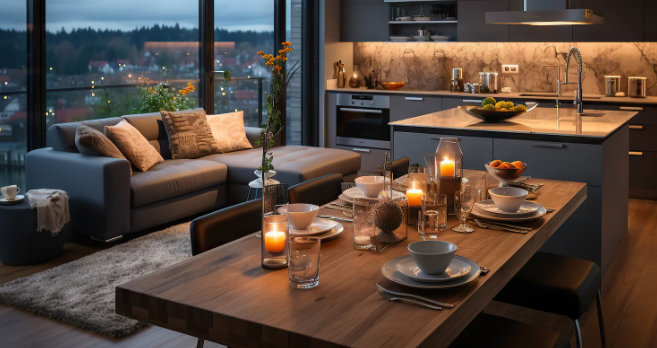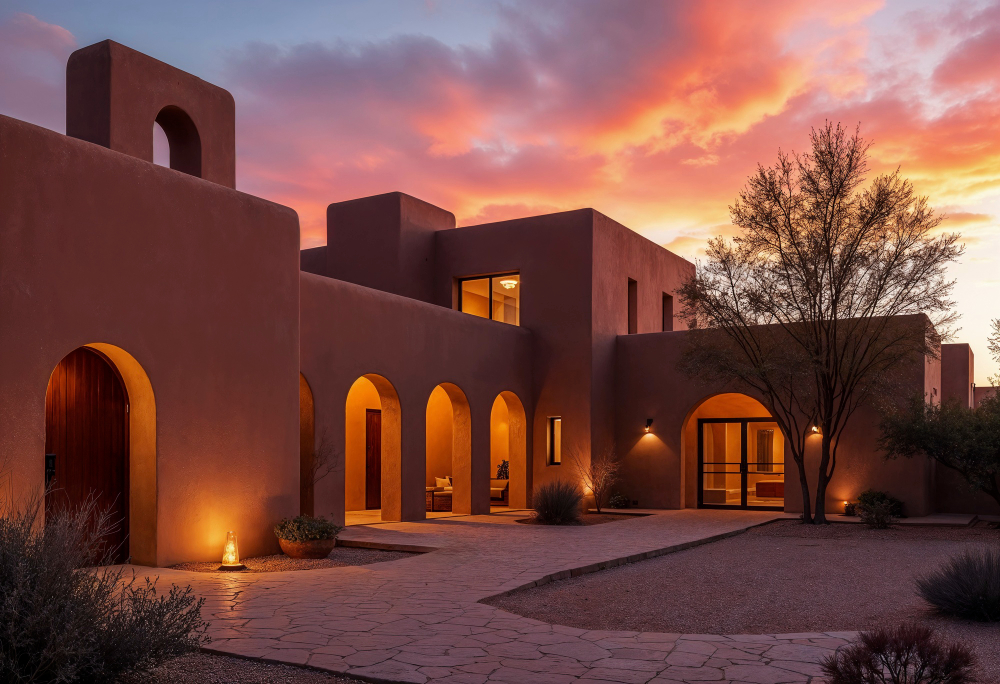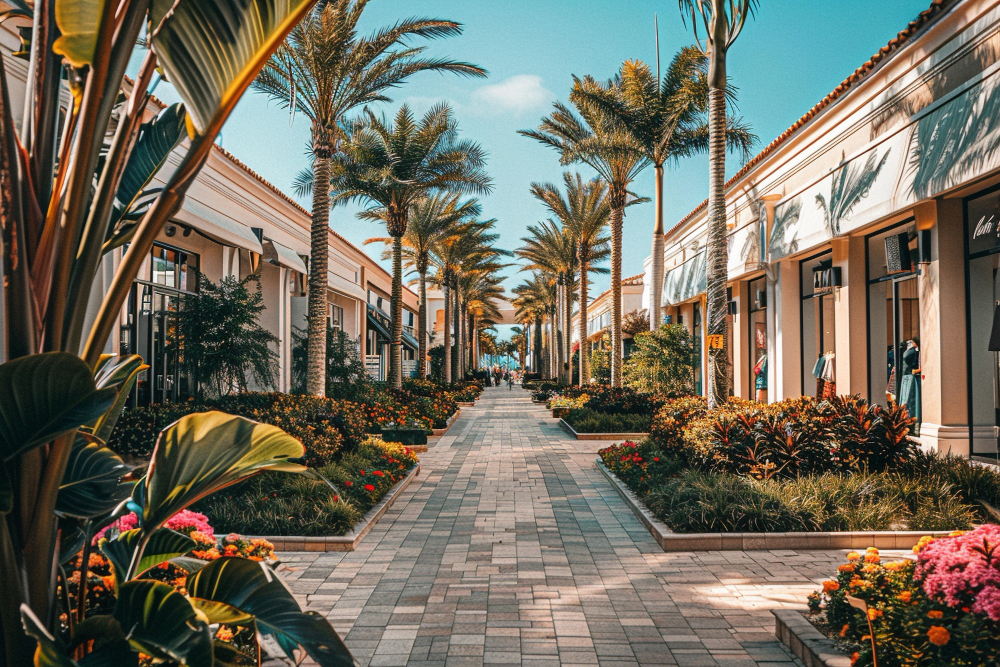Planning a vacation in the City of Gold can be an exciting experience filled with endless possibilities. When it comes to accommodation, the modern traveler seeks more than just comfort—they desire an experience that captures the essence of Dubai’s luxury and lifestyle. That is why Luxury holiday homes in Dubai have become the preferred choice for discerning visitors. Imagine waking up to panoramic views of the Burj Khalifa or enjoying sunset dinners by the Palm Jumeirah shoreline—these are the indulgences that make your stay extraordinary.
In this blog, we will share comprehensive tips to help you book the perfect luxury holiday home in Dubai with confidence. You’ll learn what to look for, how to compare properties, and how to make the most of your stay. Whether you are a family, a couple, or a group of friends, understanding what defines true luxury will make your Dubai vacation seamless. By the end, you’ll see why booking through bnbmehomes ensures a world-class experience curated to perfection.
Things to Know Before Booking Luxury Holiday Homes in Dubai
Before you begin your search for the ideal stay, it’s essential to understand what makes Dubai’s luxury properties unique. These homes are more than accommodations—they represent personalized comfort, convenience, and exclusivity. Understanding these factors ensures that your investment translates into a memorable experience.
1. Understanding the Dubai Luxury Rental Market
- Dubai’s luxury rental market offers diverse options—from ultra-modern apartments in Downtown to lavish villas on Palm Jumeirah. Prices fluctuate depending on location, amenities, and season. Knowing the market dynamics helps you secure the best deal at the right time. Travelers should explore seasonal offers and early booking benefits to make the most of their budget while still enjoying premium facilities.
- In addition, high-end homes in Dubai often come with concierge services, private pools, and panoramic views. By choosing verified listings on trusted platforms like bnbmehomes you can ensure transparency and authenticity. Understanding these aspects helps you filter out what truly meets your definition of luxury.
2. Choosing the Right Location
- The location of your luxury holiday home can define your entire Dubai experience. Popular areas include Palm Jumeirah for its exclusivity, Downtown Dubai for proximity to attractions, and Dubai Marina for waterfront leisure. Each area has its own charm—whether you prefer vibrant nightlife or serene sea views.
- Consider accessibility, nearby attractions, and the ambiance that best fits your travel style. For instance, Palm Jumeirah offers secluded serenity, while Business Bay places you at the heart of city life. Evaluating these details ensures you select a neighborhood that complements your vacation goals.
3. Assessing Amenities and Features
- Luxury homes are defined by their amenities—think infinity pools, private beach access, or bespoke interiors. Before booking, review the facilities that matter most to you. Some guests value in-house gyms, while others prioritize chef services or family-friendly layouts.
- bnbmehomes, for instance, curates villas and apartments equipped with high-end furnishings, smart technology, and personalized hospitality. Always confirm the inclusions such as Wi-Fi, security, and parking before finalizing your booking to avoid surprises.
4. Checking Property Authenticity and Reviews
- In the digital age, visuals can be misleading. Always verify listings from trusted websites or property managers. Reviews are a strong indicator of credibility and guest satisfaction. Look for detailed feedback on cleanliness, service quality, and responsiveness of hosts.
- bnbmehomes ensures that each property is verified and managed professionally to maintain international standards. This transparency gives travelers peace of mind, ensuring that their chosen home lives up to expectations.
5. Understanding Booking Policies and Legalities
- Luxury rentals often have distinct policies regarding check-in times, cancellations, and deposits. Dubai also enforces strict tourism and property regulations to ensure safety. Before confirming your booking, carefully review the terms and communicate with the host for clarity.
- bnbmehomes follows Dubai Tourism (DTCM) regulations, guaranteeing legal compliance and safe stays. Guests benefit from transparent communication, secure payment gateways, and customer support, ensuring a smooth process from inquiry to check-out.
Expert Tips to Book the Best Luxury Holiday Homes in Dubai
Once you know the fundamentals, you can dive into actionable strategies to secure your dream stay. These tips combine insider knowledge, local expertise, and modern travel insights to elevate your booking experience.
1. Book Early for the Best Selection
- Dubai is a global hub for tourists, especially during winter and major events like Expo City exhibitions or New Year’s Eve celebrations. Booking early ensures access to top-tier properties before demand spikes.
- Early reservations also often come with promotional rates and flexible terms. Platforms like bnbmehomes update listings regularly, allowing guests to plan months in advance without last-minute stress.
2. Compare Value Beyond Price
- Luxury isn’t just about price tags—it’s about the overall experience. Compare properties based on amenities, location, reviews, and service quality. Sometimes, a slightly higher nightly rate can secure you unmatched comfort and convenience.
- bnbmehomes offers curated selections with transparent pricing, ensuring no hidden charges. Use filters and comparison tools to evaluate what truly adds value to your stay.
3. Leverage Concierge and Add-On Services
- Many luxury properties offer concierge services such as airport transfers, private chefs, or yacht rentals. These elevate your vacation from comfortable to unforgettable. Always inquire about optional experiences available with your booking.
- bnbmehomes specializes in tailored guest experiences—from desert safaris to private dining. Taking advantage of these services can help you design a vacation that aligns perfectly with your preferences.
4. Consider Duration and Stay Flexibility
- If you plan a long-term stay, inquire about weekly or monthly rates. Many hosts offer discounts for extended bookings, providing significant value. Flexibility with check-in and check-out dates can also open up better options.
- bnbmehomes accommodates both short and long stays, making it ideal for business travelers, families, and remote workers seeking a homely yet luxurious base in Dubai.
5. Check for Customer Support and Response Time
- A responsive host is the backbone of a stress-free booking experience. Before confirming, test the communication speed and professionalism of your contact. Prompt, clear communication signals reliability.
- bnbmehomes offers 24/7 support through its dedicated guest service team, ensuring assistance from booking to departure. This reliability differentiates professional hosts from casual listings.
Why Choose bnbmehomes for Luxury Holiday Homes in Dubai
bnbmehomes has become synonymous with premium short-term rentals across Dubai. With a portfolio of handpicked properties, they combine hospitality expertise and local insights to redefine luxury living. Their team ensures that every stay exceeds expectations, from immaculate housekeeping to personalized concierge assistance.
The company stands out for its transparency, DTCM-licensed operations, and dedication to guest satisfaction. Whether you desire a waterfront villa or a chic Downtown penthouse, bnbmehomes provides exclusive access to Dubai’s finest residences. Their seamless digital booking system, coupled with 24/7 support, guarantees a hassle-free experience for every traveler.
Conclusion
Booking Luxury holiday homes in Dubai doesn’t have to be complicated—it just requires informed choices. By understanding the market, prioritizing amenities, and partnering with trusted providers, you can transform your vacation into an unforgettable journey. From the vibrant pulse of Downtown Dubai to the tranquil charm of Palm Jumeirah, every luxury home has a story waiting to be lived.
When you choose bnbmehomes, you choose comfort, class, and confidence. With their verified properties, transparent services, and local expertise, your Dubai getaway will be as effortless as it is extraordinary. Start exploring today and experience what true luxury living feels like in the heart of the UAE.









